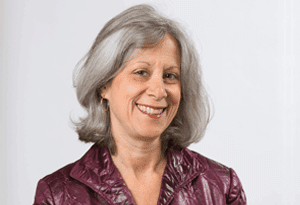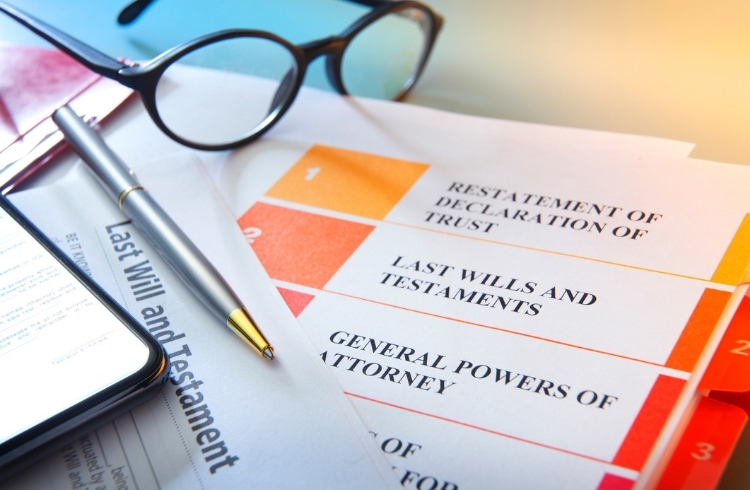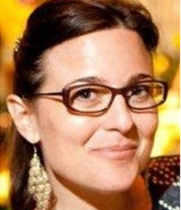
Interview with estate planning attorney Ellen Kahn, BCPP Board Member and 2X Climb Against the Odds climber
August is National Make-A-Will Month! In honor of this purposeful occasion, I sat down with estate planning attorney and BCPP Board Member Ellen Kahn. My hope for the interview was to demystify the will-making process and clear up any misconceptions about who should be prioritizing wills on their to-do list. If you think will-making is just for those ages 65 and over, think again!
Research says that only about 30% of Americans have a will. Yet, my guess is that most people would prefer to have their affairs in order and assets protected when it’s their time to go.

Estate planning attorney Ellen Kahn, a BCPP Board Member and 2X Climb Against the Odds Climber
Making a will ensures that you protect the people and causes you care about. Not only does it leave your affairs in order for your family, doing so ensures your legacy and the impact you want to leave behind.
So, whether you are 18 or 80, everyone needs a will. And there’s no better moment than now to find some peace of mind in planning for the future.
Ellen, thank you for sitting down to answer these questions for our supporters.
- Is making a will still applicable to someone who doesn’t make a lot of money or own property?
Yes, making a will sets out how you want to leave your assets. If you do not make a will, state statutes direct how your assets are distributed when you die. It is always much better to make this decision yourself.

- A common thing we hear from people is that their family knows what they want. If this is true, is leaving a will still necessary?
Yes, a will is necessary because it is not your family’s decision where your assets should be distributed. It is your decision. If you do not have a will, it is not up to your family to distribute your assets. The state statutes will control the distribution of your assets. This is particularly important if you are in a second marriage and have children from a first marriage. And if you have minor children and do not direct in a will for assets for them to be held until they reach a certain age, they will receive their inheritance when they are as young as 18. That is rarely a good idea.
- Is making a will complicated and does it require a lot of time and expertise?
Each state has its own rules about how to write a will. The more complex your affairs, the more complex the will – you might even need a trust. A will should cover the following topics:
- Who will receive your assets? Is the distribution of dollar amounts, specific items, or percentages?
- Who receives the assets if your beneficiary is not alive? Maybe the beneficiary’s children, maybe the other beneficiaries, or maybe one or more charities?
- If your beneficiary is a minor, should assets be held in a trust until the beneficiary reaches a certain age? Say, 30?
- Who should be the executor (the person who handles your affairs)?
- Who will you name as guardian for your minor children?
- In addition to including family beneficiaries, can I include a nonprofit in my will or estate plan? Are there extra benefits of doing this?
Yes, you can always name a charity as a beneficiary of your estate plan. If your estate is very large, it will reduce estate taxes.

- What else should someone think about in preparing an estate plan?
When doing estate planning, it is important to think through the following:
- Share with your named executor where you will keep your will.
- You need other estate planning documents too – such as an Advanced Health Care Directive and a Durable Power of Attorney for Property Management. These documents are important in the event you are ever incapacitated and unable to make your own health care or financial decisions.
- Make sure you have created a list of your assets so that your executor can step in and handle your affairs rather than looking throughout your house to try and find what you own.
- If you have passwords or a key to a safe deposit box, make sure that your trusted family members or your executor knows where you keep this confidential information. This is not information to be shared lightly, so be certain you trust the individuals with whom you share this information.
- Talk with your family members or other trusted members of your circle about your burial or cremation plans. Your family should not have to figure this out following your death.
- Talk with your health care agent (the person you name in your Advanced Health Care Directive) in advance of illness about your thoughts on end-of-life decision making. Review this issue regularly.
Ellen says that you need to be thoughtful about estate planning. These are not easy topics, and most of us do not like talking about our own deaths, or the deaths of those we love. But it is important that we do it. And once we do it, we need to review it every 3 or 4 years, or when something major changes in our lives (such as getting married, having a baby, moving from one state to another, or having a serious illness). The drafting of documents needs to be precise and is best done with a lawyer, although this can be expensive. There are online programs that assist people in writing wills and other estate planning documents, although Ellen does not vouch for any particular company. Some states, such as California, permit an individual to write their own will in their own handwriting without witnesses. This is called a “holographic” will, and the rules for it need to be followed carefully (we are not setting out the rules here). But generally, a will requires witnesses.
In addition to protecting the people you care about, you can combine your desire to support breast cancer prevention with your overall financial, tax, and estate planning goals. You can leave a portion of your estate to Breast Cancer Prevention Partners in your will. A planned gift gives you a special connection to BCPP and will help ensure that we can continue our work for years to come.

Sample Language
Here’s a quick blurb to use:
I bequeath [the sum of _________ dollars] [all the rest, residue, and remainder of my estate] [an amount equal to _____ percent of the remainder of my estate] to Breast Cancer Prevention Partners (EIN: 94-3155886), located in San Francisco, CA.
“For me, it never felt quite like the time to consider, let alone start working on a will. I’m 31, healthy, and living life up. And then COVID-19 hit last year. I knew in my heart that now was the time to do it. Both my mom and I decided we would tackle our affairs together and get it done! Getting started was half the battle. But once I found an online service that I could trust working with, the process was smooth sailing. I encourage all to do what makes you feel comfortable and confident for your legacy giving. We went with LegalZoom, but there are many options including finding a local attorney to do most of the work for you. For my mom’s estate planning we needed to complete paperwork for power of attorney, an advanced health care directive, a living trust, and a last will and testament. For myself, I just went with a living trust. The process was easy and painless, and both mom and I felt at ease once we had these documents done. Little did we know, my mama would unexpectedly pass away just a year after signing her estate paperwork. Losing my beautiful and wise mom has been the hardest experience of my life. But because mom was proactive with getting her estate planning done, my little sisters and I don’t have to carry an immense burden of scrambling and stressing to get the probate court what they need. My advice? Take care of yourself, loved ones, and future generations by getting your will done and designate a legacy gift to Breast Cancer Prevention Partners!”
No matter how much you leave, you want to make sure it goes to the people and causes you care about.
For questions or more information, check out Ways to Give or contact us.

